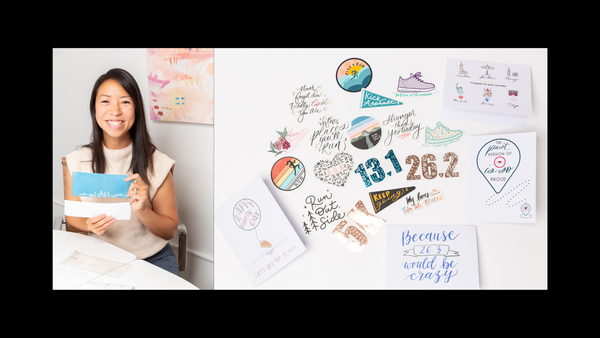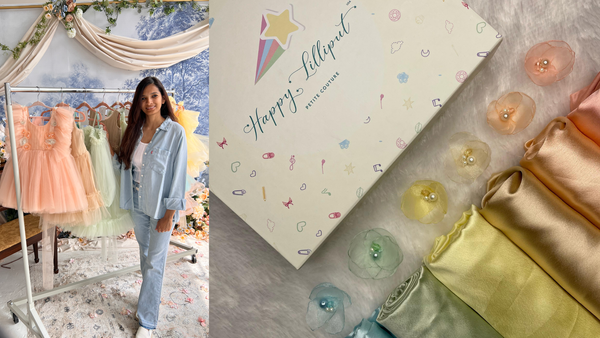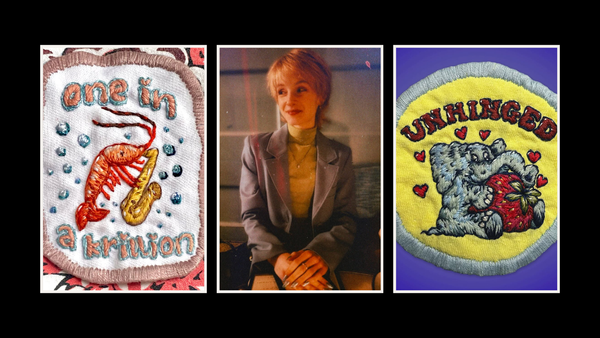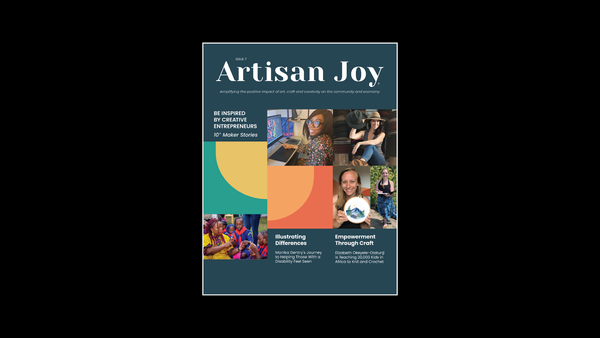From Video Producer to Chocolatier: How Mastering Her Craft Has Always Fueled This Entrepreneur’s Success

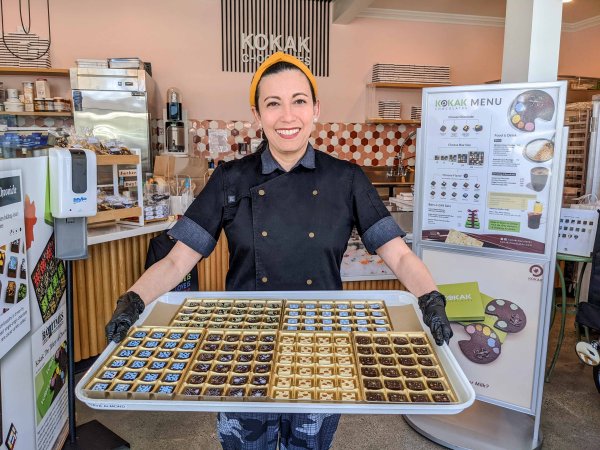
Carol Gancia is the founder of Kokak Chocolates, an artisanal chocolate company in San Francisco. The creative entrepreneur has an incredible story—Carol, an Irish-Filipino immigrant and LGBTQ member, moved to the United States from Manila, Philippines in 2004. In the same year, she founded Ripplemakers, Inc., a video production company, which she currently serves as its president and executive producer. Carol has always been passionate about food and honed her culinary chops as a television show producer for KQED’s “Check Please! Bay Area” and “Jacque Pépin: More Fast Food My Way.”
After mastering her career as a video producer, Carol challenged herself to lean into her love of food and create artisanal chocolates. Today the chocolatier is making waves in the culinary world with her colorful and playful confections inspired by her Asian heritage and childhood. Kokak means “ribbit” in Filipino. Carol shares excellent advice for artisans and makers in her interview, especially those looking to launch an artisanal food.
Artisan Joy: How did you get started creating artisanal chocolate?
Carol Gancia: I love making stuff. I have made purses, hair accessories, needlework art, curtains, notecards and even skincare products. I enjoy drawing and painting. I also love cooking and baking artfully presented food for family and friends.
I was a journalist turned promotional video producer who started yearning for a new challenge and a new adventure a few years ago. After working in the video production industry for two decades, I was ready to be clueless and scared again.
The largest joy of entrepreneurship I receive is creating products that I offer to customers. Less than ten years ago, I decided on chocolates. I learned to make chocolates from different inspiring female master chocolatiers all over the country. I continue to craft chocolates because I enjoy making people happy.
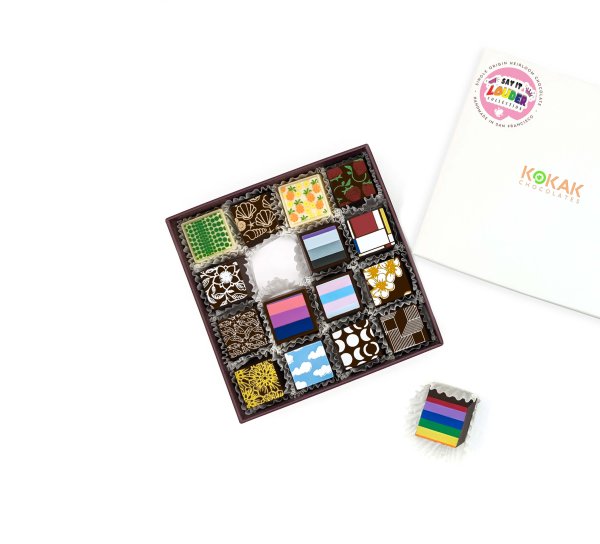
AJ: At what point did you realize that you could turn making chocolates into a business?
CG: I usually turn my creative passion into a business once I know that I will never get sick of doing it. I enjoy working with my hands. Making chocolates reminds me of my chocoholic family. It’s my happy place. I believe it also takes creativity to sell chocolates. I enjoy the challenge of learning and creating a profitable path for my passion.
AJ: How do you define success for your creative business?
CG: Chocolate is the language of love. It is what our customers gift their loved ones to say, “I love you,” “I’m sorry,” “I miss you,” and “I’m proud of you.” Success for myself means becoming an instrument in touching the lives of every single person on the West Coast through our chocolates. I feel very happy seeing our customers order our chocolates for their loved ones from all over the country.
AJ: Where do you find inspiration?
CG: My inspiration comes from my own life experiences.
AJ: What’s one piece of advice you wish someone had given you when you first started your business?
CG: Do not start your business by opening a retail shop with a kitchen, no matter how conservative the square footage is compared to a dedicated commercial kitchen. It takes a lot of energy and financial resources to run a brick-and-mortar retail store while making the chocolates from scratch. Keep your operation simple until you have fine-tuned your business model.
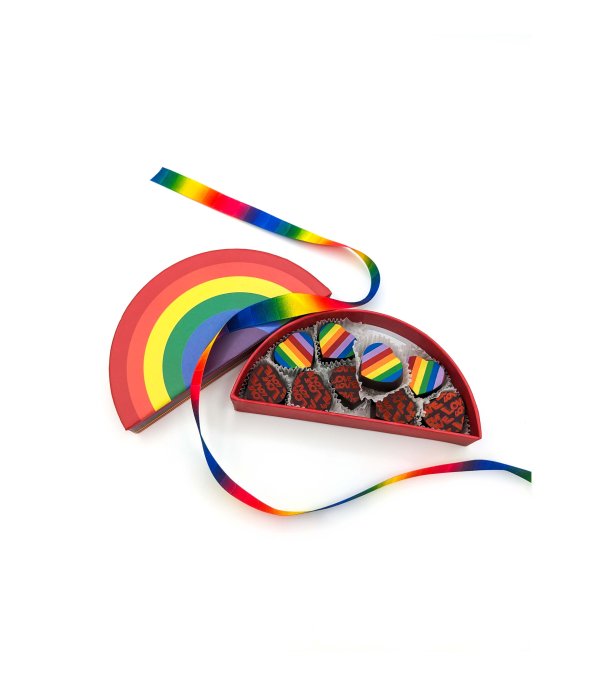
AJ: What advice would you give to someone who wants to begin selling their art or creative product?
CG: Buy from your competitors. Sit in a cafe across the street from your ideal business and count the number of people who go into their store at different times of the day and week. Use your intel to create a business plan with sales projections.
AJ: What’s something our audience would be surprised to learn about you?
CG: I love learning, and it is my primary motivation in my businesses and not money. It doesn’t mean I don’t focus on profitability. It is a given, but what makes me happy is when I’m growing and evolving throughout life.
AJ: As creatives, we can be continuously creating and refining our art. How do you handle perfectionism?
CG: As a professional artisan, you will develop techniques that will help you achieve a level of quality that will keep you proud of your work.
You will also track your labor and ingredients in every product to determine a price that will cover your cost and give you a decent profit that will pay for you and your operating cost. Customers will only pay so much for your product, and that will inform you how far you want to take your work.
Having said all this, I still do not compromise. I would rather close shop than scrimp on my ingredients, for example. In the end, see what makes sense to you based on your goals, principles, beliefs and how deep your pocket is.
AJ: What’s something that surprised you about running a creative business?
CG: I have always had creative businesses. What surprised me was the amount of pivoting and learning I needed to do in chocolates to get to the same level of business acumen I mastered in video production.
AJ: Running a business brings joys and challenges. What advice would you give to someone about handling the highs and lows?
CG: Stay the course. Persistence differentiates you from the next starting entrepreneur who gives up too soon before cracking the code to business success.
Save for the rainy days. Always.
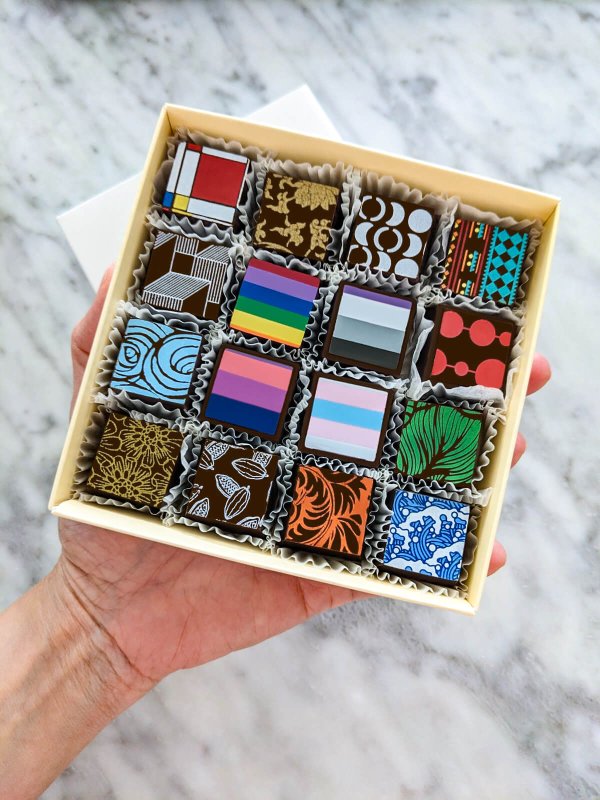
AJ: Has someone ever criticized your work? How did you handle it?
CG: I’m used to feedback. It’s part of my earlier training as a journalist. You need to keep proving yourself every day. It’s most important to know your worth, listen, take advice that helps you and filter out the rest.
AJ: What’s a cause you are passionate about and why?
CG: I am passionate about encouraging people to become entrepreneurs. Renaissance Entrepreneurship Center helped me so much when I was just starting. They offer courses that serve as a steppingstone to bigger and better things. They also have grants, scholarships and loans.
AJ: Can you share the name of a supplier or vendor that you use for your business that you just love— one that makes running a business a bit easier?
CG: I love buying locally, especially with a company that is easy to do business with. There is a family-owned farm in Lincoln, CA, called Fiddyment Farms. I have tried so many different nuts in my life, and their pistachio is superb.
AJ: And, of course, we have to ask you this: what brings you joy?
CG: It makes me happy to bring joy to our customers and help them find the perfect chocolate to connect with their loved ones. I am grateful for the opportunity to do this every day. It also brings me so much joy to see my employees flourish and start their own businesses. Finally, it brings me joy and peace to see a work-life balance where I get to do my passion while enjoying time with my family and friends. Work is a big part of my life. I enjoy working very intensely, but by far, my time on Boracay island, Philippines, takes the cake!
Thanks, Carol! You can learn more about Kokak Chocolates at www.kokakchocolates.com.
This interview has been edited slightly for clarity.

